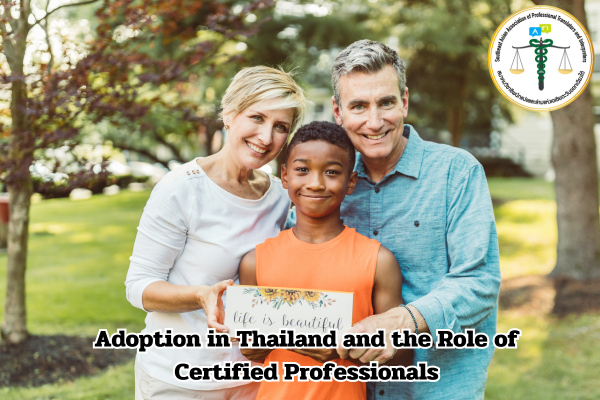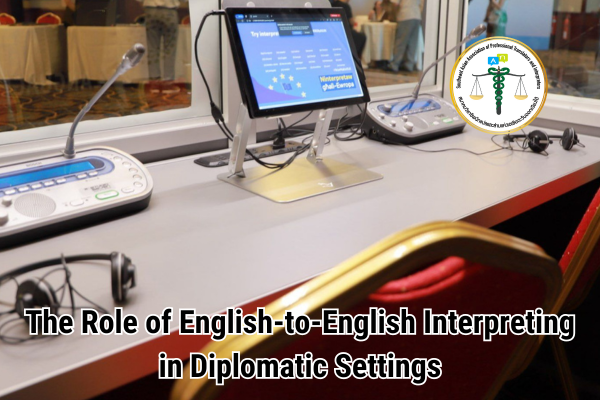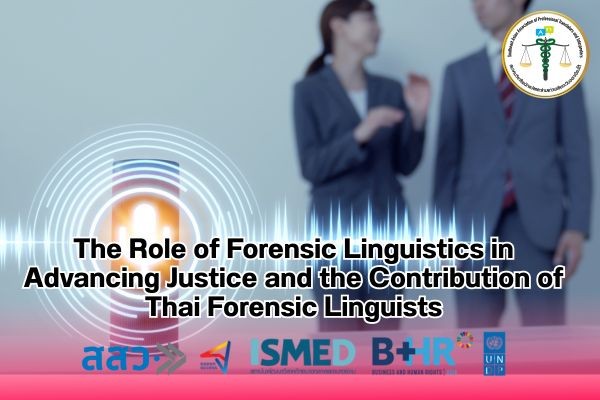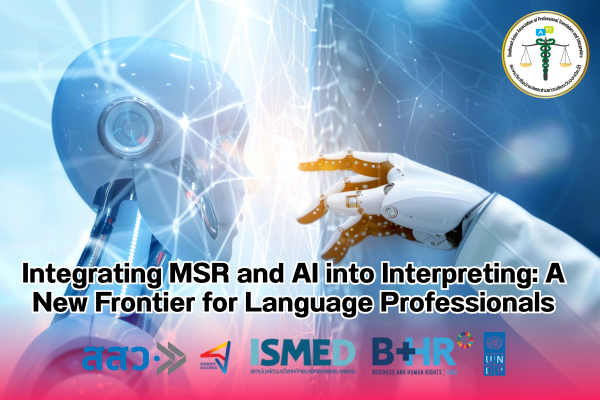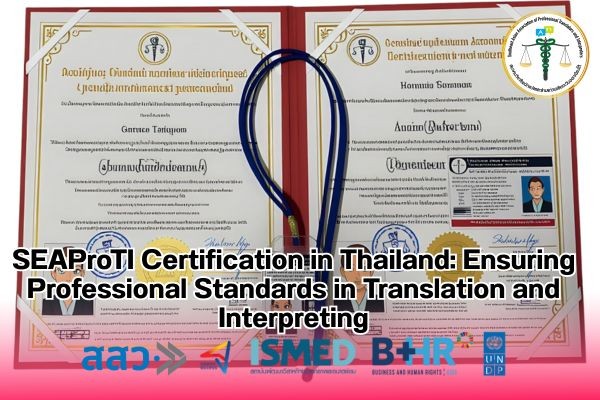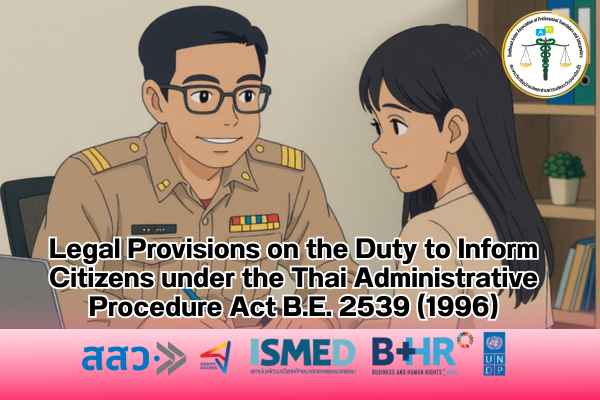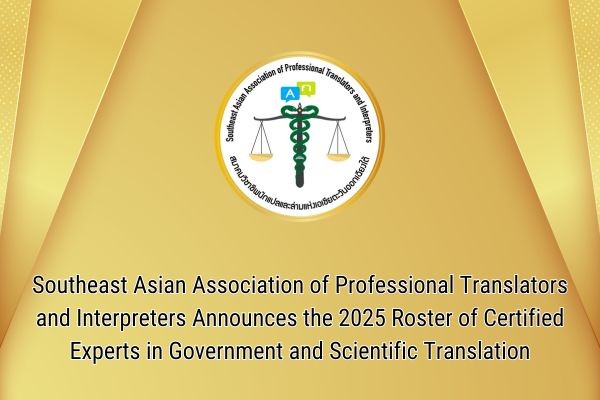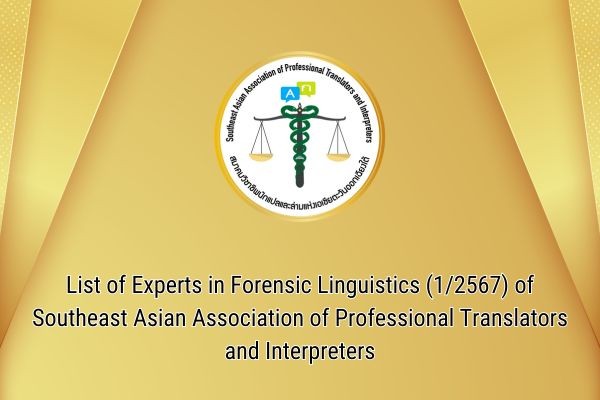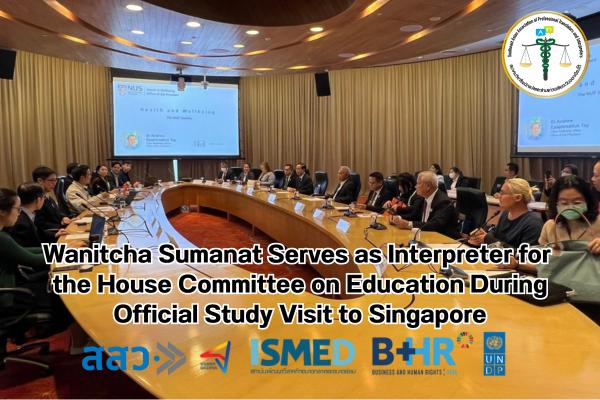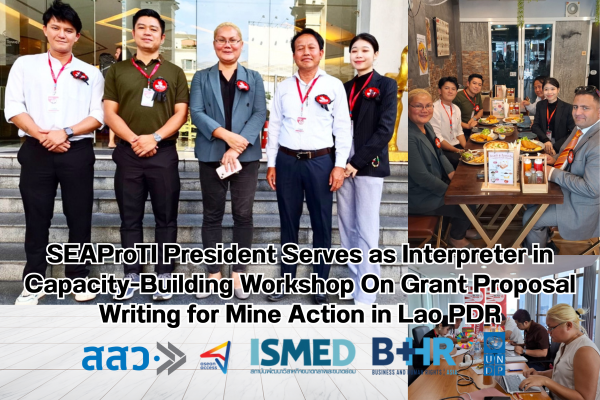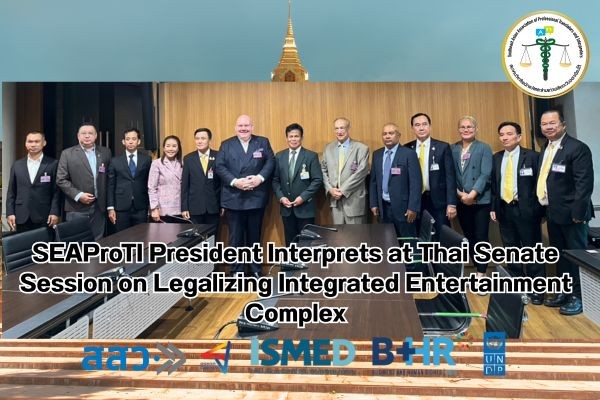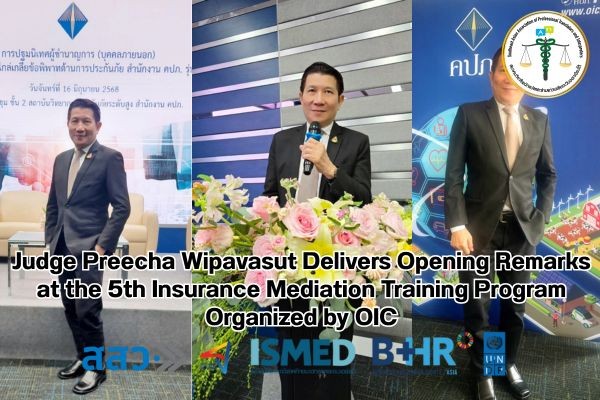Adoption in Thailand and the Role of Certified Translators, Certifiers, and Interpreters
Adoption Law in Thailand
26 February 2025, Bangkok – Adoption in Thailand is governed by the Adoption Act of 1979, which is the primary statute that outlines who may adopt and who may be adopted. This law is essential for both domestic and international adoptions, ensuring that children are placed in suitable families capable of providing the care and support they deserve.
Eligibility Requirements for Adopters in Thailand
To be eligible to adopt in Thailand, prospective adoptive parents must meet specific criteria set forth by the law. The adopting couple must be legally married, and both parties must consent to the adoption. They must be at least 25 years old and at least 15 years older than the child to be adopted. Additionally, both must meet their own national legal requirements for adoption, have no criminal record, and be in good physical and mental health. They must also have the financial capability to provide for the child.
Relaxation of Requirements in Certain Cases
These guidelines apply to both domestic and international adoptions. However, the Child Adoption Center of the Department of Social Development and Welfare (DSDW) may relax or impose stricter requirements depending on the specific circumstances. For example, if the child is a stepchild, the 15-year age gap or the 25 to 40 age range requirement may be relaxed to allow the adoption to proceed. The primary concern is to ensure that the child is placed in a complete and supportive family environment, which may take precedence over certain eligibility criteria.
Adoption by Single Individuals and Overweight Applicants
In recent years, the DSDW has permitted single individuals to adopt, particularly those seeking to adopt special-needs children. However, severely overweight applicants may be denied adoption, even if they meet other requirements, due to concerns about both the adoptive parent’s health and the potential for the child to adopt unhealthy habits if placed in such an environment.
Divorcees as Potential Adopters
Divorcees may also qualify to adopt, but typically, they must not have been divorced more than once. The DSDW evaluates all applicants on a case-by-case basis to ensure the child will be placed in a loving, stable, and suitable environment.
Changing Guidelines and Case-by-Case Consideration
These eligibility guidelines may change over time and are often adjusted depending on the circumstances of each individual case. The priority is always to ensure that children receive the care and attention of a family that can provide the love and support they need.
The Role of Certified Translators, Certifiers, and Interpreters
In the adoption process, certified translators, certifiers, and interpreters from the Southeast Asian Association of Professional Translators & Interpreters (SEAProTI) play a critical role, particularly when it comes to international adoption. The adoption process often involves various documents that must be translated, such as marriage certificates, health certificates, and documents from the child’s country of origin. These documents need to be accurately translated into Thai or English to ensure they are accepted by the relevant authorities in Thailand.
Role of Certified Translators in Document Translation
Certified translators from SEAProTI are responsible for translating these documents accurately and ensuring they are certified by the relevant authorities. This certification ensures that the translated documents are legally recognized and can be used in the adoption process. Additionally, certifiers verify the accuracy of these translations to ensure that they meet legal requirements.
Role of Interpreters in Communication
Interpreters also play a vital role in the adoption process, especially when communication between the authorities and prospective adopters is needed. For example, if an international applicant does not speak Thai fluently, a certified interpreter can assist in ensuring smooth communication and preventing misunderstandings during meetings with the adoption authorities.
Summary of SEAProTI’s Role in the Adoption Process
The involvement of certified translators, certifiers, and interpreters is essential in ensuring that the adoption process runs smoothly and legally. Their role extends beyond document translation to facilitating communication and ensuring that all parties involved understand their rights and obligations throughout the process. The ultimate goal is to ensure that the child is placed in a family that can provide a stable, loving, and supportive environment.
In conclusion, certified translators, certifiers, and interpreters from SEAProTI are indispensable in supporting the adoption process in Thailand. Their expertise ensures that all legal and communication hurdles are addressed, enabling prospective adopters and authorities to work together to provide children with the care and family they need.
SEAProTI’s certified translators, translation certification providers, and certified interpreters:
The Southeast Asian Association of Professional Translators and Interpreters (SEAProTI) has officially announced the criteria and qualifications for individuals to register as “Certified Translators,” “Translation Certification Providers,” and “Certified Interpreters” under the association’s regulations. These guidelines are detailed in Sections 9 and 10 of the Royal Thai Government Gazette, issued by the Secretariat of the Cabinet under the Office of the Prime Minister of the Kingdom of Thailand, dated July 25, 2024, Volume 141, Part 66 Ng, Page 100.
To read the full publication, visit: the Royal Thai Government Gazette
การรับเลี้ยงบุตรในประเทศไทยและบทบาทของนักแปลรับรอง ผู้รับรองการแปล และล่ามรับรอง
กฎหมายการรับเลี้ยงบุตรในประเทศไทย
26 กุมภาพันธ์ 2568, กรุงเทพมหานคร – การรับเลี้ยงบุตรในประเทศไทยถูกควบคุมโดยพระราชบัญญัติการรับเลี้ยงบุตร พ.ศ. 2522 ซึ่งเป็นกฎหมายหลักที่กำหนดข้อกำหนดเกี่ยวกับผู้ที่สามารถรับเลี้ยงบุตรและผู้ที่สามารถถูกรับเลี้ยงได้ กฎหมายนี้ใช้สำหรับการรับเลี้ยงทั้งในประเทศและจากต่างประเทศ โดยมีวัตถุประสงค์เพื่อให้แน่ใจว่าเด็กได้รับการดูแลในครอบครัวที่เหมาะสมและสามารถให้การสนับสนุนที่ดีที่สุดแก่เด็ก
คุณสมบัติของผู้ที่สามารถรับเลี้ยงบุตรในประเทศไทย
ผู้ที่มีสิทธิ์ในการรับเลี้ยงบุตรในประเทศไทยจะต้องมีคุณสมบัติตามข้อกำหนดที่กฎหมายกำหนดไว้ โดยผู้ที่ขอรับเลี้ยงบุตรต้องมีการสมรสถูกต้องตามกฎหมายและทั้งสองฝ่ายต้องให้ความยินยอมในการรับเลี้ยงบุตร ทั้งสองฝ่ายต้องมีอายุไม่น้อยกว่า 25 ปี และอายุของทั้งสองฝ่ายต้องห่างจากเด็กที่จะรับเลี้ยงอย่างน้อย 15 ปี นอกจากนี้ทั้งสองฝ่ายยังต้องมีคุณสมบัติตามกฎหมายของประเทศต้นทางที่สามารถรับเลี้ยงบุตรได้ ไม่มีประวัติอาชญากรรม และต้องมีสุขภาพทั้งร่างกายและจิตใจที่ดี รวมถึงมีความสามารถทางการเงินที่เพียงพอในการดูแลเด็ก
การผ่อนผันข้อกำหนดในบางกรณี
ข้อกำหนดเหล่านี้ใช้ได้ทั้งในกรณีที่เป็นการรับเลี้ยงบุตรภายในประเทศและการรับเลี้ยงบุตรจากต่างประเทศ โดยศูนย์การรับเลี้ยงบุตรของกรมพัฒนาสังคมและสวัสดิการ (DSDW) อาจพิจารณาผ่อนผันข้อกำหนดบางประการตามสถานการณ์ เช่น ในกรณีที่เด็กที่ต้องการรับเลี้ยงเป็นลูกเลี้ยงของคู่สมรส อาจผ่อนผันข้อกำหนดเรื่องอายุห่างกันไม่ต้องถึง 15 ปี หรือช่วงอายุระหว่าง 25 ถึง 40 ปี เพื่อให้การรับเลี้ยงบุตรดำเนินไปได้ โดยที่ความสำคัญหลักคือการจัดหาครอบครัวที่พร้อมและสามารถดูแลเด็กได้
การรับเลี้ยงบุตรจากบุคคลโสดและผู้ที่มีน้ำหนักตัวเกิน
ในช่วงหลังๆ มีการอนุญาตให้บุคคลที่โสดสามารถรับเลี้ยงบุตรได้ โดยเฉพาะในกรณีที่เด็กมีความต้องการพิเศษ นอกจากนี้ ผู้ที่มีน้ำหนักตัวเกินอาจไม่ได้รับอนุญาตให้รับเลี้ยงบุตร แม้ว่าจะมีคุณสมบัติอื่นๆ ตามข้อกำหนด เนื่องจากมีความกังวลเกี่ยวกับสุขภาพของผู้ขอรับเลี้ยงบุตรและความเสี่ยงที่เด็กจะได้รับพฤติกรรมที่ไม่ดีต่อสุขภาพจากผู้เลี้ยง
ผู้ที่เคยหย่าร้างสามารถรับเลี้ยงบุตรได้
สำหรับผู้ที่เคยหย่าร้างมาก่อน ก็สามารถยื่นขอรับเลี้ยงบุตรได้ โดยต้องไม่เคยหย่าร้างเกินหนึ่งครั้ง คณะกรรมการการรับเลี้ยงบุตรจะพิจารณาทุกกรณีอย่างรอบคอบเพื่อให้มั่นใจว่าเด็กจะได้รับการดูแลจากครอบครัวที่เหมาะสม โดยข้อกำหนดเหล่านี้อาจมีการเปลี่ยนแปลงหรือปรับตามสถานการณ์แต่ละกรณี แต่สิ่งที่สำคัญที่สุดคือการให้เด็กได้รับการดูแลจากครอบครัวที่เหมาะสม
บทบาทของนักแปลรับรอง ผู้รับรองการแปล และล่ามรับรอง
ในกระบวนการรับเลี้ยงบุตรนี้ นักแปลรับรอง ผู้รับรองการแปล และล่ามรับรองจากสมาคมวิชาชีพนักแปลและล่ามแห่งเอเชียตะวันออกเฉียงใต้ (SEAProTI) มีบทบาทสำคัญในการช่วยให้กระบวนการดำเนินไปอย่างราบรื่น โดยเฉพาะในกรณีที่เป็นการรับเลี้ยงบุตรจากต่างประเทศ ซึ่งมักจะมีเอกสารต่างๆ ที่ต้องแปล เช่น ใบรับรองการสมรส ใบรับรองสุขภาพ หรือเอกสารจากหน่วยงานในประเทศต้นทาง ซึ่งต้องมีการแปลเป็นภาษาไทยหรือภาษาอังกฤษเพื่อให้สามารถใช้ในกระบวนการรับเลี้ยงบุตรได้
บทบาทของนักแปลรับรองในการแปลเอกสาร
นักแปลรับรองจาก SEAProTI จะช่วยให้เอกสารเหล่านี้ได้รับการแปลอย่างถูกต้องและได้รับการรับรองจากหน่วยงานที่เกี่ยวข้อง เพื่อให้เอกสารเหล่านั้นเป็นที่ยอมรับตามกฎหมายในประเทศไทย ขณะที่ผู้รับรองการแปลจะตรวจสอบความถูกต้องของการแปล เพื่อให้มั่นใจว่าเอกสารที่แปลสามารถใช้งานได้ในกระบวนการต่างๆ ของการรับเลี้ยงบุตร
บทบาทของล่ามรับรองในการสื่อสาร
นอกจากนี้ ล่ามรับรองยังช่วยในการสื่อสารระหว่างเจ้าหน้าที่และผู้ขอรับเลี้ยงบุตรที่อาจไม่คล่องแคล่วในภาษาไทย ช่วยให้การติดต่อประสานงานดำเนินไปอย่างราบรื่นและเข้าใจได้ดี โดยเฉพาะในกรณีที่ผู้ขอรับเลี้ยงบุตรเป็นชาวต่างชาติที่อาจไม่เข้าใจภาษาไทยได้ดี
สรุปบทบาทของ SEAProTI ในกระบวนการรับเลี้ยงบุตร
บทบาทของนักแปลรับรอง ผู้รับรองการแปล และล่ามรับรองไม่ได้จำกัดอยู่แค่การแปลเอกสารเท่านั้น แต่ยังมีบทบาทสำคัญในการสนับสนุนกระบวนการรับเลี้ยงบุตรให้เป็นไปอย่างถูกต้องตามกฎหมาย และทำให้กระบวนการต่างๆ เป็นไปอย่างมีประสิทธิภาพ ลดความผิดพลาดที่อาจเกิดจากการแปลที่ไม่ถูกต้องหรือความเข้าใจผิดในระหว่างการสื่อสาร
ดังนั้น บทบาทของนักแปลรับรอง ผู้รับรองการแปล และล่ามรับรองจาก SEAProTI เป็นส่วนสำคัญในการสนับสนุนกระบวนการรับเลี้ยงบุตรในประเทศไทย ไม่ว่าจะเป็นการแปลเอกสารหรือการช่วยในการสื่อสารในระหว่างกระบวนการ ซึ่งทั้งหมดนี้มีเป้าหมายเดียวกันคือเพื่อให้เด็กได้รับการดูแลจากครอบครัวที่เหมาะสมและพร้อมให้ความรักและการสนับสนุนที่ดีที่สุด
เกี่ยวกับนักแปลรับรอง ผู้รับรองการแปล และล่ามรับรองของสมาคมวิชาชีพนักแปลและล่ามแห่งเอเชียตะวันออกเฉียงใต้
สมาคมวิชาชีพนักแปลและล่ามแห่งเอเชียตะวันออกเฉียงใต้ (SEAProTI) ได้ประกาศหลักเกณฑ์และคุณสมบัติผู้ที่ขึ้นทะเบียนเป็น “นักแปลรับรอง (Certified Translators) และผู้รับรองการแปล (Translation Certification Providers) และล่ามรับรอง (Certified Interpreters)” ของสมาคม หมวดที่ 9 และหมวดที่ 10 ในราชกิจจานุเบกษา ของสำนักเลขาธิการคณะรัฐมนตรี ในสำนักนายกรัฐมนตรี แห่งราชอาณาจักรไทย ลงวันที่ 25 ก.ค. 2567 เล่มที่ 141 ตอนที่ 66 ง หน้า 100 อ่านฉบับเต็มได้ที่: นักแปลรับรอง ผู้รับรองการแปล และล่ามรับรอง


